Tine Nordgreen
Adherence Forecasting for Guided Internet-Delivered Cognitive Behavioral Therapy: A Minimally Data-Sensitive Approach
Jan 11, 2022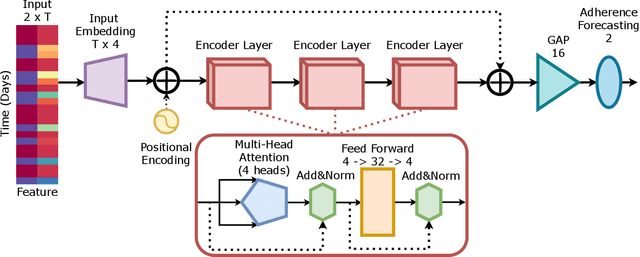
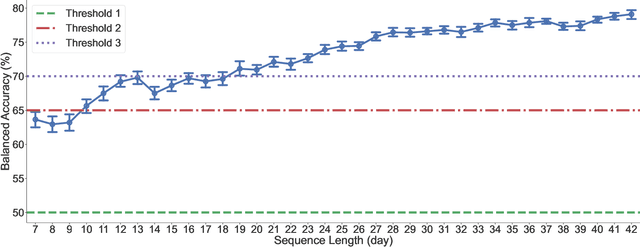
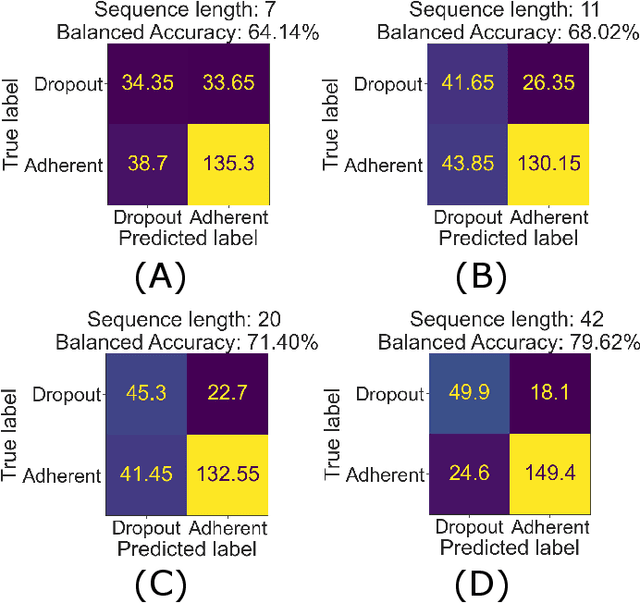
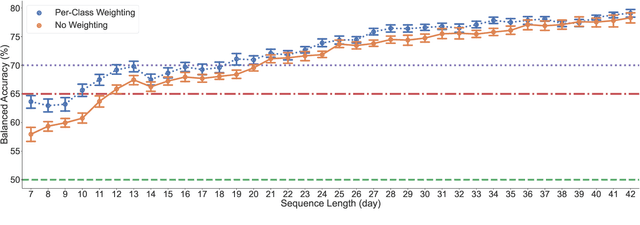
Abstract:Internet-delivered psychological treatments (IDPT) are seen as an effective and scalable pathway to improving the accessibility of mental healthcare. Within this context, treatment adherence is an especially relevant challenge to address due to the reduced interaction between healthcare professionals and patients, compared to more traditional interventions. In parallel, there are increasing regulations when using peoples' personal data, especially in the digital sphere. In such regulations, data minimization is often a core tenant such as within the General Data Protection Regulation (GDPR). Consequently, this work proposes a deep-learning approach to perform automatic adherence forecasting, while only relying on minimally sensitive login/logout data. This approach was tested on a dataset containing 342 patients undergoing guided internet-delivered cognitive behavioral therapy (G-ICBT) treatment. The proposed Self-Attention Network achieved over 70% average balanced accuracy, when only 1/3 of the treatment duration had elapsed. As such, this study demonstrates that automatic adherence forecasting for G-ICBT, is achievable using only minimally sensitive data, thus facilitating the implementation of such tools within real-world IDPT platforms.
Long-Short Ensemble Network for Bipolar Manic-Euthymic State Recognition Based on Wrist-worn Sensors
Jul 01, 2021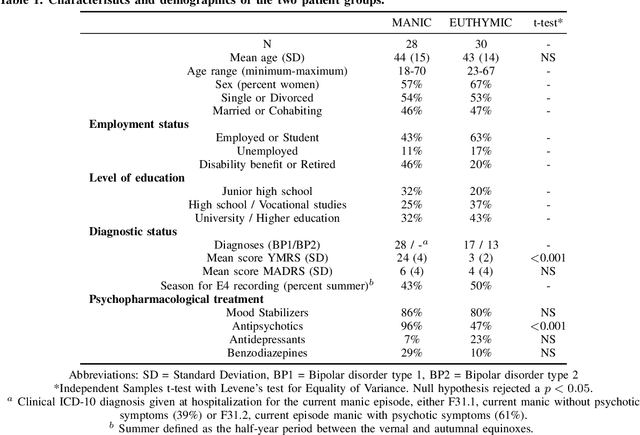
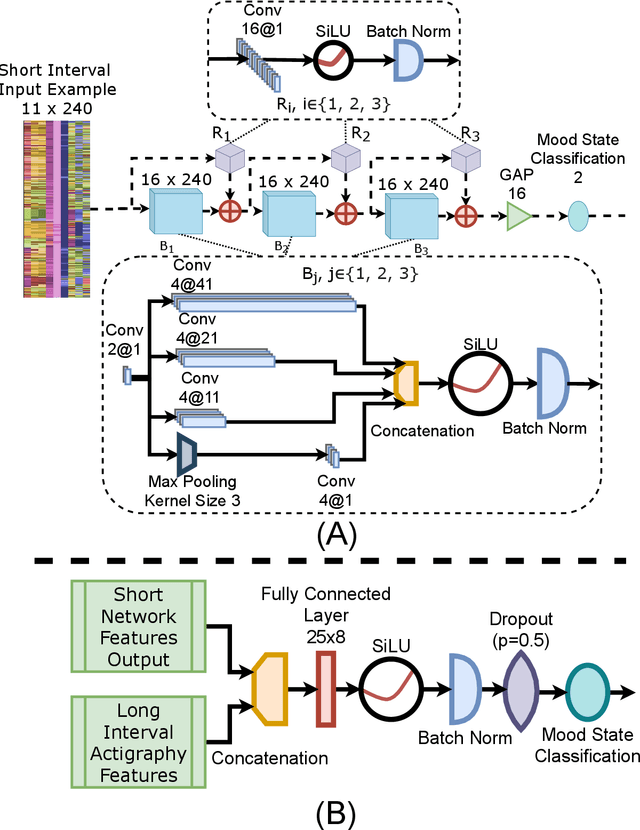
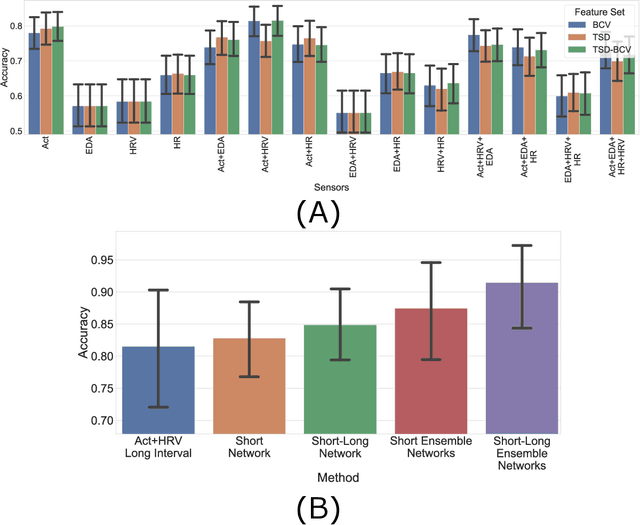
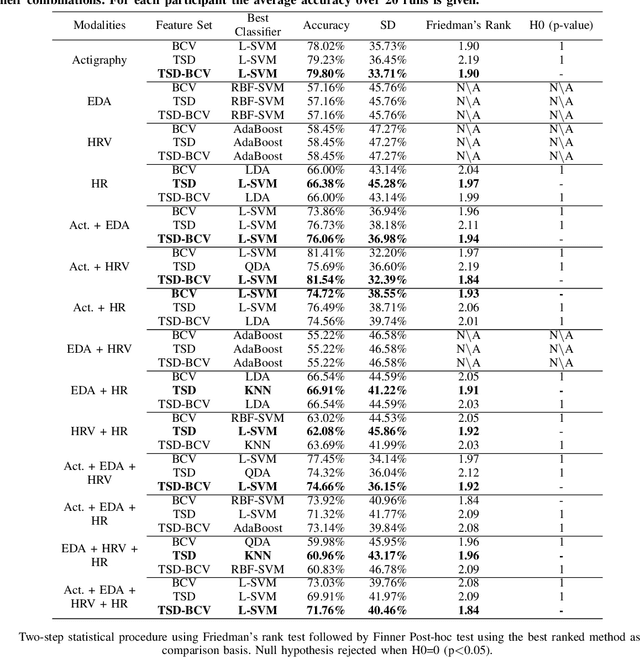
Abstract:Manic episodes of bipolar disorder can lead to uncritical behaviour and delusional psychosis, often with destructive consequences for those affected and their surroundings. Early detection and intervention of a manic episode are crucial to prevent escalation, hospital admission and premature death. However, people with bipolar disorder may not recognize that they are experiencing a manic episode and symptoms such as euphoria and increased productivity can also deter affected individuals from seeking help. This work proposes to perform user-independent, automatic mood-state detection based on actigraphy and electrodermal activity acquired from a wrist-worn device during mania and after recovery (euthymia). This paper proposes a new deep learning-based ensemble method leveraging long (20h) and short (5 minutes) time-intervals to discriminate between the mood-states. When tested on 47 bipolar patients, the proposed classification scheme achieves an average accuracy of 91.59% in euthymic/manic mood-state recognition.
 Add to Chrome
Add to Chrome Add to Firefox
Add to Firefox Add to Edge
Add to Edge